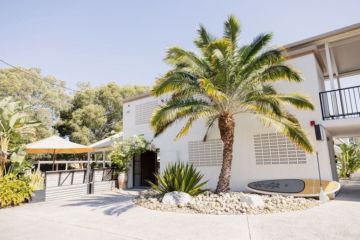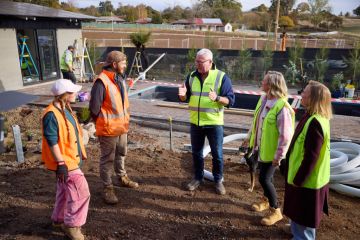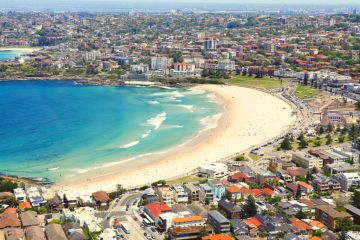Caution urged as foreign property investment faces political change

International property experts are cautiously watching the future of Australian foreign investment following the chaos of Brexit, the rise of Pauline Hanson and new tax hikes for overseas buyers.
Hanson and One Nation’s parliamentary allies could threaten international confidence in Aussie bricks and mortar and harm its reputation if their influence was to grow — under any Senate voting bloc with likeminded parties — real estate commentators believe.
Deputy director of the Australia-China Relations Institute at the University of Technology Sydney, Professor James Laurenceson, said sophisticated Chinese investors understood there were many voices in Australian politics.
“What would cause real damage is if the likes of Pauline Hanson and others antagonistic towards foreign investment started having an impact on the policies of the major parties and our approvals regime,” Professor Laurenceson said.
“The way the approvals regime is currently structured is already unhelpful to Australia’s international standing. We have an absurd situation where an American investor can buy Australian agricultural land worth up to $1.1 billion without needing any Foreign Investment Review Board clearance, while Chinese investors need approval if the value is just $15 million.
“Any further moves in this direction would come at a very high cost to our reputation.”
Australia’s property market has been a target of race-based protests in the past year12 months. Protesters from Party for Freedom lashed out with “foreign ownership is economic genocide” placards at several Sydney auctions, and dropped letterbox leaflets attacking Chinese buyers as “invaders”.
Professor Laurenceson called for a bipartisan stand against anti-foreign investment sentiment.
“If that happens, then Chinese investors will have confidence that despite the more extreme voices, Australia’s political system is robust enough to keep them away from the mainstream and from influencing policy,” he said. “It also would help if trade unions in the construction sector spoke up. After all, it’s their members that get jobs because of Chinese investment.”
Indians are tipped to be the next trophy home buyers, with India’s economic growth this year expected to surpass China’s and increasing individual wealth.
New Delhi’s only luxury home show is advertising for Australian property developers and marketers to exhibit at its October event, the International Real Estate Expo. Show director Vimal Anand said while internal politics would not taken into account by investors, “anti-foreign investment movement should not grow”.
RMIT University property researcher Peng Wong described Hanson’s platform as “negative marketing”, but he is more closely monitoring the effect of a beefed up foreign buyer tax in Victoria from July 1.
Overseas buyers of NSW property have also been slugged with a 4 per cent tax and foreign buyers in Queensland face a 3 per cent tax following last month’s state budget.
Mr Wong said the outcome of the Victorian surcharge, which was lifted from 3 to 7 per cent, was too early to call, but, he said, similar tax rises in Hong Kong caused house prices to drop 20 to 30 per cent.
“Singapore did the same thing, imposing a 15 per cent stamp duty on foreign buyers, and as a result the market has come down — not as drastically as Hong Kong’s, but Singapore’s market has never recovered,” he said.
“In our studies, government policy is so important as far as the impact on foreign investor sentiment.
“Perhaps it is too premature to predict what will happen, but historical events speaks for itself.”
Similar instability has rocked the UK in the wake of Brexit. Knight Frank project marketing director Richard Drummond said that typically, overseas investors avoided shaky markets.
“There is confidence around regulation, people trust the Australian property market,” Mr Drummond said.
“We may not be able to get the huge volumes (of sales) we have achieved in China in the past, but we’ll see more of Singapore, Hong Kong and Malaysia, and I think that is probably where the growth is.”
Mr Drummond said the push for Australian property from overseas buyers had slowed.
“Last year we had a strong rush in May and June — we had a sales person signing up a deal at 11.30pm on June 30 on the bonnet of a car in South Yarra, but we didn’t see that sort of activity this year,” he said.
“It has softened a little bit but it may be the projects that we are selling, in West Melbourne, Northcote, South Yarra, Blackburn, Templestowe, Hawthorn — so, not big CBD projects on the go at the moment, so we are not as exposed to the FIRB market.”
We recommend
States
Capital Cities
Capital Cities - Rentals
Popular Areas
Allhomes
More







